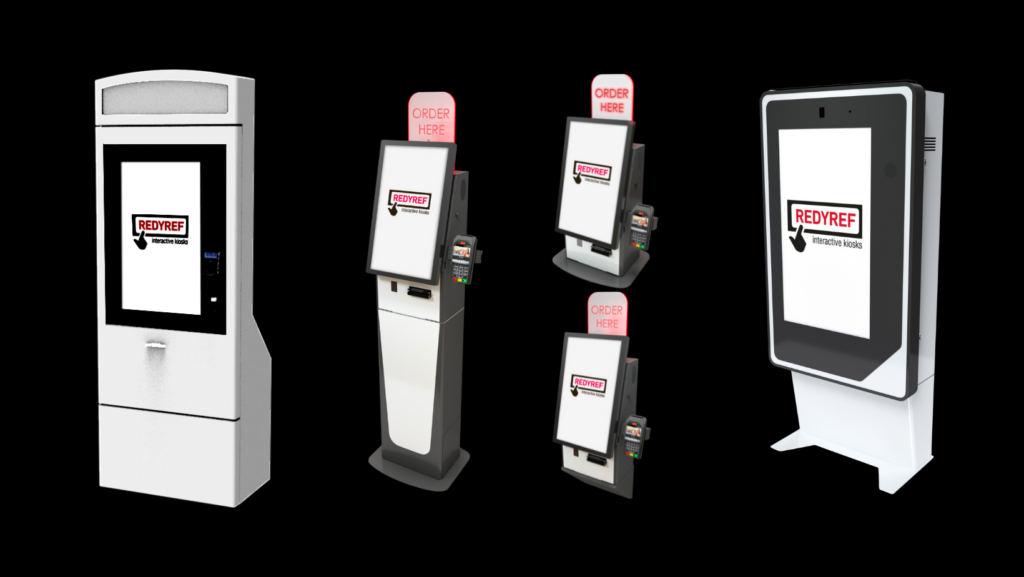Over the last ten years, self-service kiosks have drastically changed how businesses connect with their customers. These digital kiosks make life easier for everyone, offering a faster, more convenient, and even enjoyable way to handle tasks like making purchases, looking up information, or placing orders. By simplifying processes and reducing the need for staff involvement, they’re making life easier for businesses and users alike. Let’s dive into what makes self-service kiosks so impactful.

10 Benefits of Self Service Kiosks
Self service kiosks aren’t just about automation—they’re about delivering smarter, faster, and more personalized customer experiences. Here are 10 key benefits of implementing self-service kiosks:
1. Convenience: Customers can handle tasks on their own time, whether it’s placing an order or checking information, even outside regular business hours.
2. Efficiency: With streamlined processes, kiosks minimize wait times and improve operations, keeping lines moving and customers satisfied.
3. Accuracy: Customers input their own information, reducing errors and ensuring seamless transactions.
4. Customization: Kiosks can be tailored to display personalized recommendations, reflect a brand’s aesthetic, or meet specific business needs.
5. Data Collection: Valuable insights into customer behavior and preferences help businesses make data-driven decisions to improve services.
6. Customer Engagement: Interactive features like maps, product catalogs, and multimedia displays make the experience more engaging and enjoyable.
7. Cost Savings: By handling routine tasks, kiosks reduce staffing needs, cutting labor costs while freeing employees for high-value roles.
8. Upselling Opportunities: Strategic prompts encourage customers to explore additional products or services, boosting revenue.
9. Queue Management: Kiosks reduce congestion at service counters, making peak hours more manageable and improving customer flow.
10. Accessibility: Designed to accommodate everyone, kiosks can include features like large text, audio output, and tactile interfaces for those with disabilities.

7 Important Types of Self-Service Kiosks
Businesses across industries are finding innovative ways to leverage self service kiosks. Here are 7 common types and how they’re used:
1. Retail Kiosks: Perfect for tasks like order placement, product browsing, and self-checkout. Customers enjoy a more seamless shopping experience while businesses benefit from reduced checkout lines.
2. Foodservice Kiosks: Allow diners to customize meals, place orders, and make payments—speeding up service and reducing order errors.
3. Financial Kiosks: Offer services like reverse ATM cash-to-card transactions, withdrawals, fund transfers, and account balance checks, saving time for customers and financial institutions alike.
4. Ticketing Kiosks: Simplify ticket purchases for events, travel, or attractions, reducing wait times and enhancing user convenience.
5. Healthcare Kiosks: Streamline check-ins, appointment scheduling, and payments, improving patient flow and reducing administrative workloads.
6. Information Kiosks: Provide visitors with maps, directions, and facility details at locations like malls, airports, and tourist attractions.
7. Interactive Wayfinding Kiosks: Help users navigate complex spaces with real-time directions and information about nearby amenities or points of interest.
Each type of kiosk is designed to meet specific business needs, offering a tailored solution to improve customer interactions and operational efficiency.
Why Partner with REDYREF for Self Service Kiosks?
With decades of experience and a reputation for innovation, REDYREF is a trusted leader in kiosk manufacturing. Here’s what sets us apart:
• Comprehensive Solutions: REDYREF offers customizable indoor and outdoor kiosks for industries ranging from retail and hospitality to healthcare and transportation.
• High-Quality Craftsmanship: Our kiosks are built to last, with durable materials like stainless steel and advanced technology that ensures reliability.
• Full-Service Support: From design and manufacturing to installation, maintenance, and repair, we’re with you every step of the way.
• Customization Options: Tailor your kiosk to reflect your brand with features like custom wraps, powder coating, and software integrations.
• Data-Driven Insights: Our kiosks are designed to collect actionable data, helping businesses optimize their operations and better serve their customers.
Self-Service Kiosks: The Future of Customer Experience
By investing in self-service kiosks, businesses can streamline operations, improve customer satisfaction, and drive revenue growth. Whether you’re looking to reduce wait times, enhance personalization, or gather valuable customer insights, kiosks offer a scalable solution for almost any industry.
Ready to explore the possibilities? Contact us today or call 1-800-626-3603 to learn how our innovative kiosks can transform your business. Let’s build the future of customer interaction—together.


